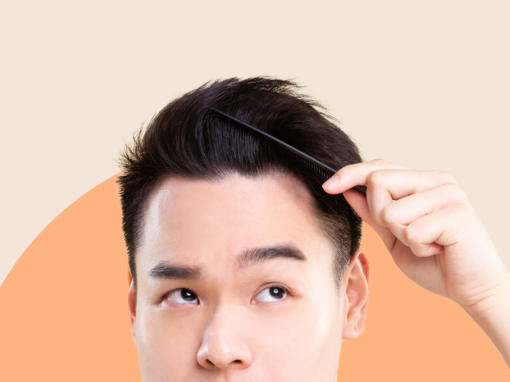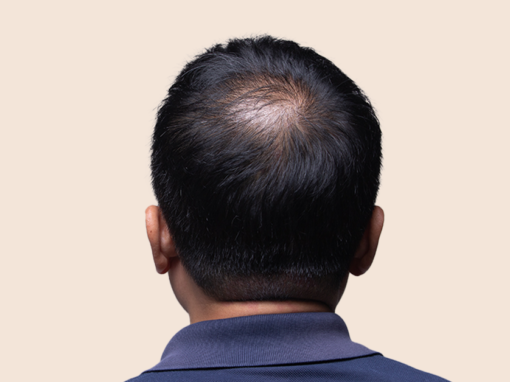Hair loss is among the most common problems faced by people around the world. It can be caused due to several factors such as age, genetics, hormones, and stress. One of the primary culprits behind hair loss is an overproduction of dihydrotestosterone (DHT). This hormone attacks the hair follicles and causes them to shrink, reducing the ability for new healthy hair to grow in its place.
To combat this issue, DHT blocker pills now help reduce DHT production to slow down or stop hair loss. Read everything you need to know about DHT and how it affects your hair health.
An overview of DHT blocker pills
DHT blocker pills are a dietary supplement that helps reduce the amount of dihydrotestosterone (DHT) in your body. DHT is a hormone produced naturally by the body, but too much can cause hair loss and other unwanted side effects. DHT blocker pills aim to reduce the amount of DHT in your system so you can avoid these negative health outcomes.
These pills typically contain natural ingredients like saw palmetto, green tea extract, and pygeum bark extract, which work together to inhibit the conversion of testosterone into DHT and thus help maintain healthy levels.
How does DHT affect hair?
DHT blocker for hair plays an important role in the development of male characteristics and hair growth, but high levels of DHT can lead to thinning hair or even baldness. DHT binds to receptors located on the follicles and interrupts the hair’s normal growth cycle, causing it to weaken and eventually stop producing new hairs.
There are several treatments for people who want to reduce their levels of DHT, including medications like finasteride DHT blocker, which block its production, and topical treatments such as natural oils, which may help reduce inflammation associated with excess DHT.
How to block DHT?
Here are three different ways to block DHT:
Medications
Finasteride:
It is an FDA-approved medication that blocks the conversion of testosterone to DHT.
Dutasteride:
It is another medication that works similarly to Finasteride by inhibiting the conversion of testosterone to DHT.
Natural supplements
Saw palmetto:
It is a natural herb that inhibits 5-alpha-reductase, an enzyme that converts testosterone into DHT. Saw palmetto DHT blocker is available in capsule or tablet form and can be found in health food stores.
Pumpkin seed oil:
It is a rich source of plant sterols that can help inhibit the production of DHT. It can be taken as capsules or added to the diet in foods such as salad dressings, smoothies, or oatmeal.
Hair products
Topical DHT blockers:
These are products that are applied directly to the scalp to block the production of DHT. They usually contain ingredients such as ketoconazole, caffeine, or azelaic acid, which have been shown to inhibit the production of DHT. They are available in the form of shampoos, conditioners, and serums.
Conclusion
DHT is a hormone that contributes to hair loss in both men and women. Fortunately, there are ways to slow or stop the effects of DHT on hair follicles. A daily DHT blocker supplement may help reduce or even reverse hair loss. There are also prescription medications available that specifically target the production of DHT.
Be sure to talk to your medical professional before trying any treatments for hair loss caused by high levels of DHT. With proper treatment, you can be on your way to healthier-looking locks!
FAQs
Q1. At what age does DHT increase?
A. The levels of DHT in the body can start to increase at puberty and continue to rise until men reach their late twenties. After that, it remains relatively stable until age 50.
Q2. Does high DHT mean high testosterone?
A. No, having high DHT does not always mean high testosterone. Dihydrotestosterone (DHT) is a hormone produced by converting the testosterone by an enzyme known as 5-alpha reductase. High levels of DHT are associated with male pattern baldness but not necessarily higher testosterone levels.
Q3. What happens when DHT levels are high?
A. When DHT levels are too high, it can lead to symptoms such as male pattern balding, enlarged prostate, and acne. To treat this condition, doctors often prescribe medications or supplements that block the production of DHT. These blockers come in various forms including tablets, topical creams, shampoos, and sprays.
This article is for informational purposes only and does not constitute medical advice. The information contained herein is not a substitute for and should never be relied upon for professional medical advice. Book a consultation with andSons medical team to learn more about healthcare treatments here.


